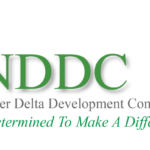Last week, President Muhamadu Buhari lauded the Petroleum Industry Act (PIA) as the most significant deliverable of his administration, with respect to the country’s oil and gas sector. Represented by the Secretary to the Federal Government Boss Mustapha at the Sixth Nigeria International Energy Summit (NIES), which held in Abuja last week, the President described the passage of the legislation as ‘revolutionary’.
Seen in full panoply, Buhari could not have put the issue in a more appropriate perspective, as the PIA – by its advent and provisions, is not only billed to set the tone for the future of the entire oil and gas sector of the country. It also offers itself as the most promising elixir for addressing the age-long spate of misgivings and malcontent in the Niger Delta.
This situation derives from the promise it offers in stemming the proclivity of the region to erupt into armed militancy by aggrieved and agitating youth, and which always proved deleterious to the country’s economic fortunes. However, feelers from the unfolding implementation of the provisions of the PIA – especially with respect to host-community affairs, dictate the need for a more assertive posture by the authorities – specifically the Nigeria Upstream Petroleum Regulatry Commission (NUPRC), and the Nigerian Midstream and Downstream Petroleum Regulatory Authority (NMDPRA). That is if the envisaged dividends from the legislation will manifest.
Already, disturbing signals of incipient flashpoints are manifesting with malcontent returning to the region, even as such remains one of the key evils which the PIA was enacted to discourage. The main issue here is the escalating grouse over what some interests in the Niger Delta see as the slow pace of implementing the provisions of the PIA, especially the constitution of host community development trust funds along with the incorporation of trustees for such dedicated largesse, by the settlors or licensed owners of oil and gas businesses in the region.
Depression: A hidden killer disease
35% Affirmative Action: One year after, how far?
In recognition of the urgency of demonstrating the nation’s willingness to address the issue of malcontent in the Niger Delta, the PIA directs the settlors to commence the process of initiating the constitution of host community trustees within one year of the passage of the Act. With the enactment of the legislation in August 2021, it means that by August 2022, the process would have been widespread across the Niger Delta host communities.
However, rather than comply with such relevant provisions of the PIA, a wide cross section of these settlors prefer to keep the PIA in abeyance and continue with the complement of Memoranda of Understanding (MOUs) which are often concocted with clauses that create more problems than solutions, with attendant flashpoints of communal turbulence.
Seen in context, the PIA had been articulated along a stream of great expectations, which included the containment of age-long grievances of the region’s agitating factors, through a fast track agenda of economic inclusion, and the promise of changing the narrative of the Niger Delta. By it was to be provided a wider scope for employment and investment options for the host communities – pursuant to meaningful, sustainable, accelerated development. Its provisions were to supersede the sundry provisions of the rash of MOUs – many of which are at variance with equity, and thereby remain less effective in fostering the prospects of sustainable resolution of the thorny issues in the region. After all, these MOUs were in place all through the seasons of turbulence in the region. This situation makes their utility in the face of the PIA, largely sub-optimal.
Considering its elaborate provisions for host communities’ welfare, and the passage of time, the absence of the onset of a flurry of mobilization tendencies in the region courtesy of the PIA, with the emergence of new actors who would play various roles in actualizing the new dispensation as articulated by the Act, remains disturbing. Yet, such is far from taking place as the response to the PIA seems rather subdued with the region still running business as usual. Whereas the Act was intended to usher in a consciousness of new beginnings and entrepreneurial flourish in the Niger Delta region, such is not yet happening.
Needless to state that the situation offers little cheer to a growing number of stakeholders in and outside the region, and who worry genuinely over a return of the better forgotten days of Niger Delta unrest. These patriots are in unison that a solution to the relative stalemate lies with assertive action by the authorities against the settlors, since the PIA has placed on the latter, the onus of initiating the change process.
There therefore needs to be a process of encouraging the settlors to revert to the PIA, even if such enterprise is to run along with their MOUs with respective host communities. But let the PIA provide the primary terms of reference as far as host community affairs are concerned. This is the position of the law.
The danger of acting otherwise is the tacit subversion of the noble intent and mission of the PIA and thereby vitiation of the scope of dividends which it should have ushered to affected host communities in particular and the nation in general. Such a situation invariably leaves the country’s oil and gas sector still vulnerable to the old order whereby it remains at the mercy of any spike in the grievances of any group of agitators, just like the proverbial hanging sword of Damocles.
And the noble promise of the PIA to tame turbulence in the Niger Delta, remains unfulfilled.

 Join Daily Trust WhatsApp Community For Quick Access To News and Happenings Around You.
Join Daily Trust WhatsApp Community For Quick Access To News and Happenings Around You.


